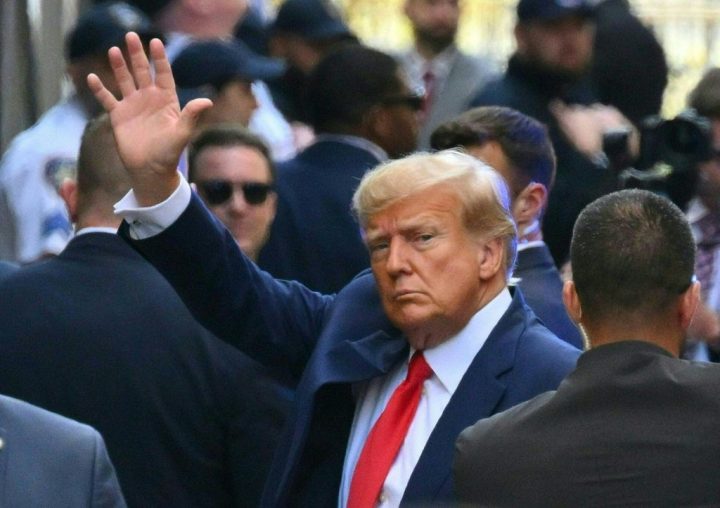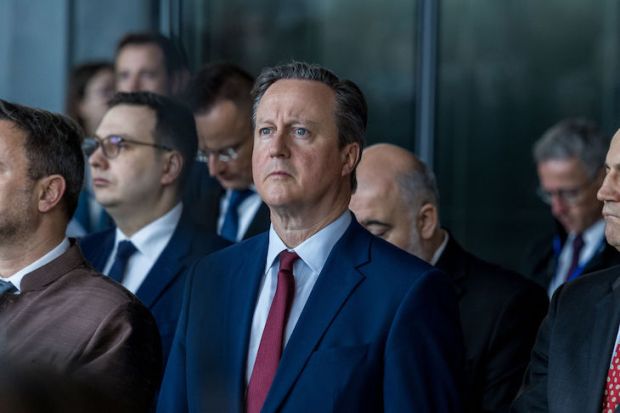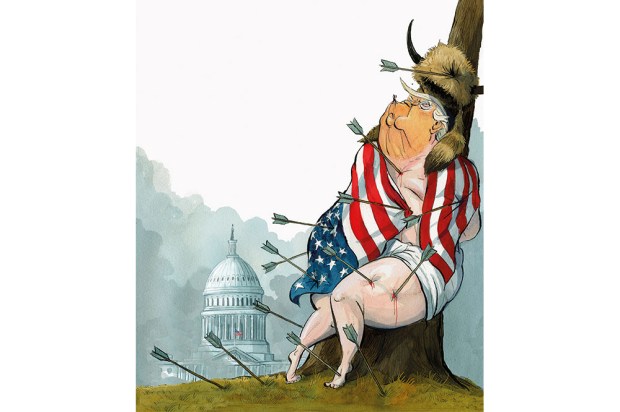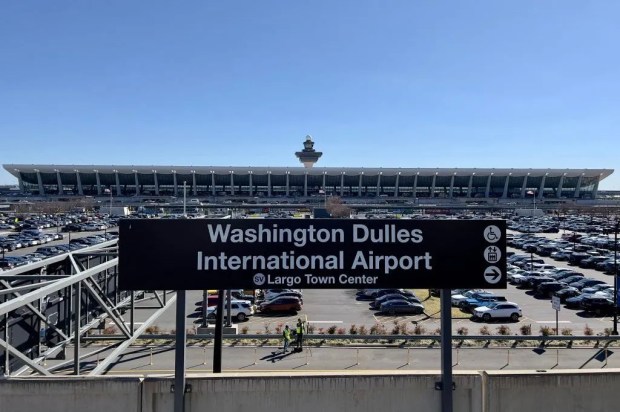The American rule of law, which seems so precious to holier-than-thou Democrats these days, depends above all on one thing: a belief among the majority that while no one is above the law, it will be applied fairly to those it does affect. Whether you loathe Trump or love him, you know this: what is happening in Manhattan right now is unfair and inconsistent with a nation that once prided itself on believing in the rule of law. Who amongst Americans is still a believer today?
The previously sealed indictment shows that Donald Trump was charged with 34 felony counts for falsification of business records. This crime is normally prosecuted in New York as a misdemeanour. But Bragg’s office apparently bumped up all the charges to felonies on the grounds that the conduct was intended to conceal another underlying crime: violating election finance law (‘with intent to defraud and intent to commit another crime and aid and conceal the commission thereof’).
If this is all they found over years of their obsession with Trump, he must be the cleanest person to ever hold office
There is more smoke than fire, and it’s no wonder the District Attorney wanted to keep this mess sealed as long as possible and the judge won’t allow cameras in the courtroom. How specifically is this unfair?
Two basic prosecutorial transgressions. If anything, Trump should have been charged with a simple misdemeanour, the so-called falsification of business records, for his seemingly characterising money legally paid to Stormy Daniels and others as part of a nondisclosure agreement as ‘legal expenses’ as well as payments to the National Enquirer to ‘catch and kill’ a story about Trump’s alleged affair with Karen McDougal and other stories.
The overall case has no victim of Trump’s ‘crime’ and is basically just a tempest over bookkeeping. Bumping all this up to felony charges based solely on Bragg’s supposition that the error was made with the intent to cheat on campaign finance laws is just overcharging. It’s trying to make all this seem more important than it is.
Stacking, the second basic prosecutorial transgression, refers to a DA’s attempt to break one ‘crime’ into as many pieces as he can (34 counts, one for each cheque cut to lawyer Michael Cohen allegedly for Stormy, et al). It also exaggerates the importance of it all and helps justify the upgrade to felonies.
Alvin Bragg ran for office on prosecuting Trump. He is fulfilling a campaign promise and paying off his backers. Bragg, in the words of law professor Jonathan Turley, had a ‘very public, almost Hamlet-like process where he debated whether he could do this bootstrapping theory [bumping misdemeanours up to felonies]. He stopped it for a while and was pressured to go forward with it. All of that smacks more of politics than prosecutorial discretion.’
Indeed, if Bragg had looked fairly at precedent, he would have run straight into the John Edwards case. Edwards, a former United States senator and 2004 Democratic vice presidential nominee, was indicted in 2011 on charges of violating campaign finance laws during his 2008 presidential campaign. The charges stemmed from allegations that Edwards had used nearly $1 million in illegal campaign contributions to conceal an extramarital affair during his campaign.
The government alleged that Edwards had received money from two wealthy donors and used it to support his mistress and their child in return for their silence. The government claimed this constituted a violation of campaign finance laws, which limit the amount of money that individuals can contribute to a campaign and require that such contributions be disclosed. Edwards maintained the payments were gifts and not campaign contributions, and therefore not subject to campaign finance laws. A jury acquitted Edwards on one count of violating campaign finance laws and deadlocked on the remaining five counts. The government ultimately decided not to retry Edwards.
If this is all they found over years of their obsession with destroying Trump, he must be the cleanest person to ever hold office. As former Supreme Court justice Robert Jackson observed decades ago about unfairness, ‘It is not a question of discovering the commission of a crime and then looking for the man who has committed it; it is a question of picking the man and then searching the law books or putting investigators to work to pin some offence on him,’ something that is inherently unfair.
For the nation’s sake, any action against Trump must preserve what is left of faith in the rule of law applied without fear or favour, or risk civil disenfranchisement if not outright civil unrest. To do this, someone will have to address the case of Hillary Clinton, who maintained an unsecured private email server processing allegedly classified material. Clinton destroyed tens of thousands of emails, potential evidence, as well as physical phones and BlackBerries.
The Hillary campaign and the DNC also did something naughty in paying for the Steele dossier as ‘legal expenses’ and not campaign expenditures, and got off with only an Election Commission fine for their bookkeeping ‘error’.
In addition, those who claim Trump’s indictment is fair will also have to account for the fact that Barack Obama’s presidential campaigns in 2008 and 2012 were found to have violated campaign finance laws and no charges were even levied. This despite the fact that during the 2008 campaign, donors were able to make contributions using fictitious names, such as ‘Mickey Mouse’ and ‘Donald Duck’, and the campaign was criticised for not doing enough to prevent fraudulent donations. Another controversy involved the Obama campaign’s use of untraceable prepaid credit cards, which raised concerns about the possibility of illegal foreign contributions. No charges were ever filed.
This concern extends past presidential politics. Speaker of the House Kevin McCarthy tweeted, ‘DA Alvin Bragg is abusing his office to target President Trump while he’s reduced a majority of felonies [in NYC], including violent crimes, to misdemeanours. He has different rules for political opponents.’ The DA’s tactics have led to a surge in crimes committed in Manhattan as prosecutions have fallen. Bragg claims that equity demands he selectively prosecute; he reduced 52 percent of all felony charges to misdemeanours, the opposite of what he did to Trump.
If the NYC standards hold, then while this is the first indictment of a former president, it will not be the last. Every local prosecutor in the country will now feel that he has a green light to criminally investigate and prosecute presidents after they leave office. Democrats salivating over the charges against Trump will feel differently when a prominent Democrat ends up on the receiving end of a similar effort by any of the thousands of prosecutors elected to local office, eager to make their bones by taking down a president. Perhaps next over the Hunter Biden case?
Could things get to the point where the rule of law means a Republican candidate will need to stay out of blue states to avoid prosecution? Trump went to New York voluntarily; imagine if he had stayed in Florida and fought an extradition attempt to force him to Manhattan. Now imagine an ageing Joe Biden a virtual prisoner of a Democratic safehouse in Delaware. Historians would have to call it the Bragg Rule.
A version of this article originally appeared on The Spectator World.
Got something to add? Join the discussion and comment below.
Get 10 issues for just $10
Subscribe to The Spectator Australia today for the next 10 magazine issues, plus full online access, for just $10.




















Comments
Don't miss out
Join the conversation with other Spectator Australia readers. Subscribe to leave a comment.
SUBSCRIBEAlready a subscriber? Log in